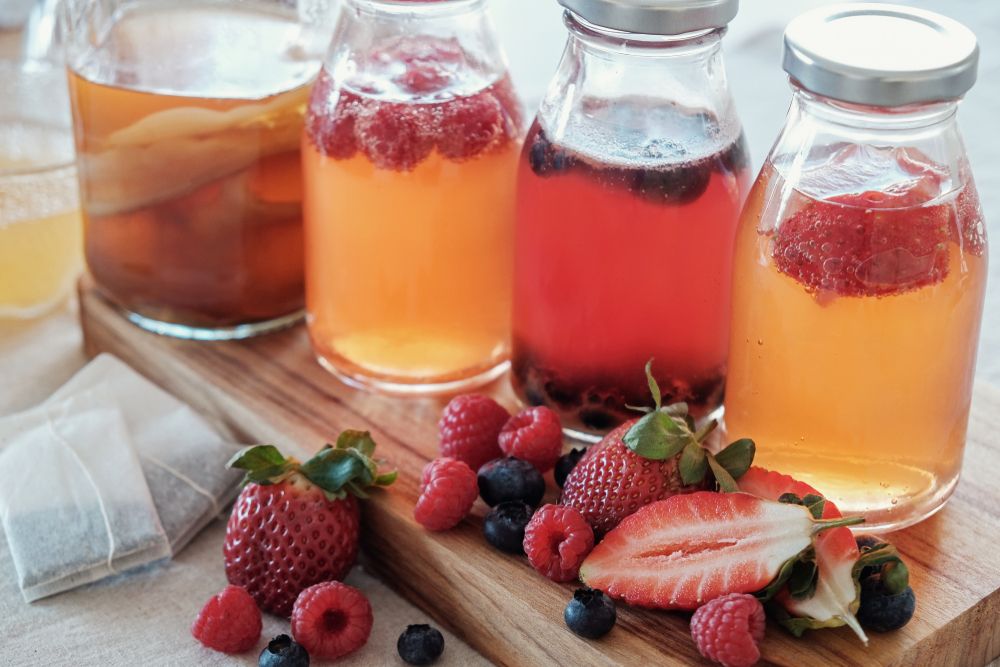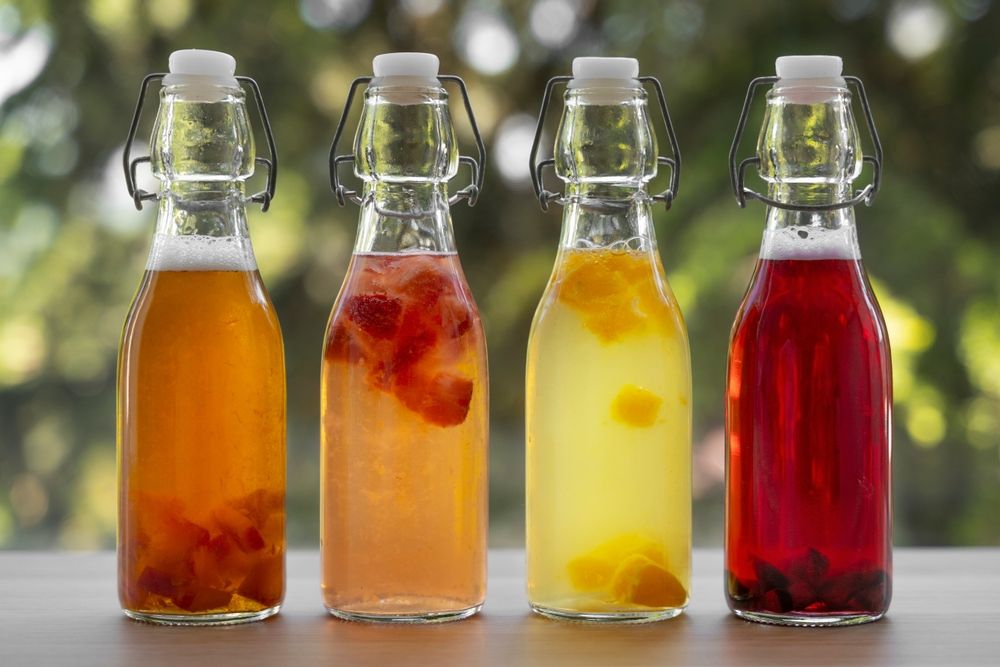
A healthier alternative to sugary drinks, kombucha has surged in popularity in recent times, though the beverage itself dates back thousands of years.
The ancient recipe blends tea, sugar, bacteria, and yeast to create a bubbly, fermented drink loaded with health benefits. Like other fermented foods such as yogurt, miso, and kimchi, kombucha contains probiotics that help maintain a healthy gut and aid digestion. It can also reduce bloating and provide an extra boost of energy.
Although its history dates back to ancient China, the modern resurgence of kombucha in America began in the 1990s, popularized by the rise of GT's Living Foods—a brand that now controls over half the U.S. market, according to the Michelin Guide.
Today, kombucha is produced by numerous brands in a variety of flavors. Some restaurants and breweries even make their own kombucha on-site. According to Statista, kombucha remains one of the nation's top-selling fermented drinks and is expected to reach over $1 billion in sales by 2024.
So, whether you're looking to jump on the kombucha wagon or simply seeking a healthier alternative to your daily soft drink or nightly beer, you'll have plenty of options.
I recently tried nine popular brands, selecting the most enticing flavor from each, in search of the best-tasting kombucha available nationwide. Here's how each brand fared, ranked from my least favorite to the overall best.
Rowdy Mermaid Organic Alpine Lavendar Kombucha
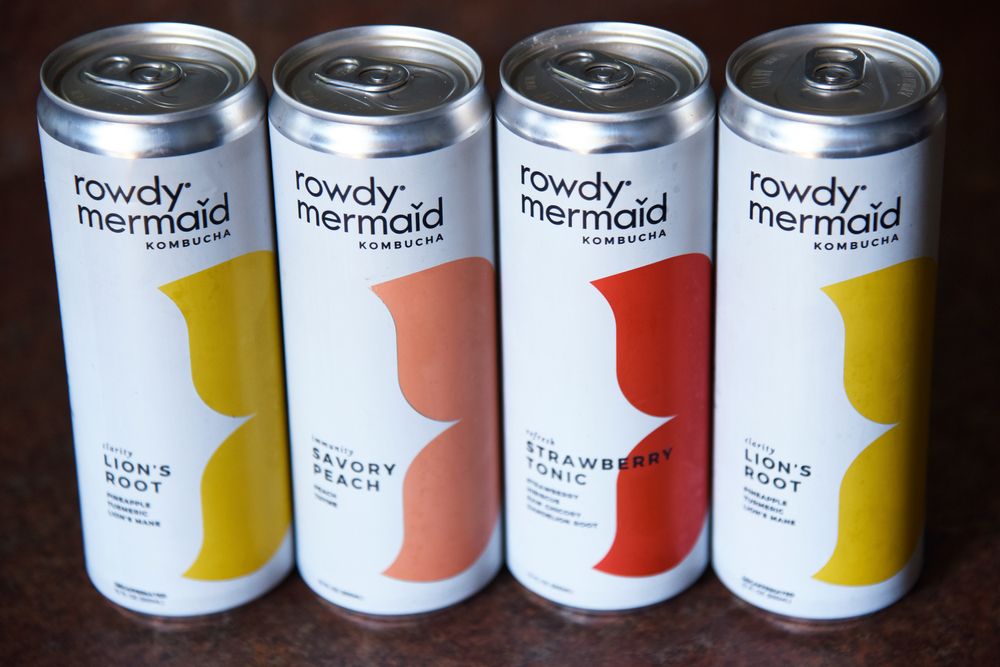
Nutrition (Per 1 Can):
- Calories: 45
- Fat: 0 g
- Sodium: 0 mg
- Carbs: 9 g (Fiber: 0 g, Sugar: 9 g)
- Protein: 0 g
Founded in 2012, this brand aimed to craft a kombucha with less sugar and a milder, less acidic flavor. I tried the alpine lavender flavor, made with black and green tea, cane sugar, lavender, and elderflower. The can cost me $3.69.
The look: This kombucha is the lightest and clearest of the bunch. There’s no cloudiness and very few visible bubbles, with an extremely light yellow color.
The taste: It tastes like sparkling lavender water, but not in a good way. It’s very watery with slight floral notes, which makes the carbonation stand out too much, resulting in an unpleasant combination. There’s just not enough flavor here to make it compelling.
Nature's Promise Organic Raspberry Lemon Ginger Kombucha
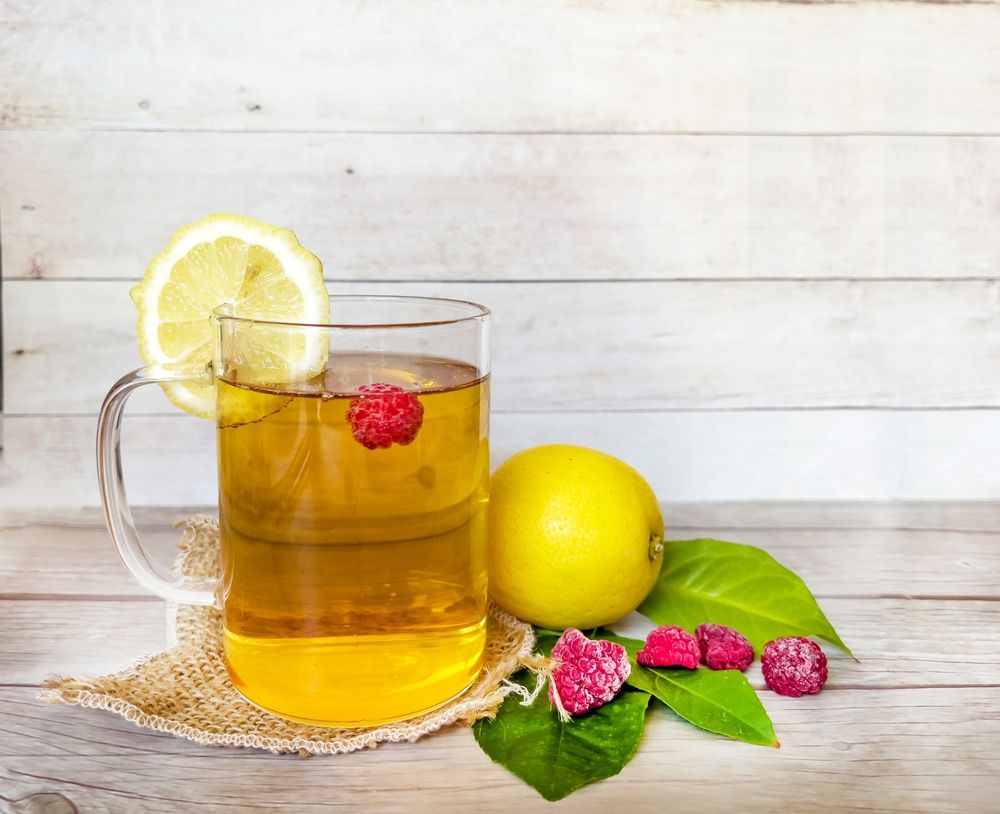
Nutrition (Per 1 Bottle):
- Calories: 45
- Fat: 0 g
- Sodium: 0 mg
- Carbs: 10 g (Fiber: 0 g, Sugar: 4 g)
- Protein: 0 g
Nature's Promise is a better-for-you brand available at Ahold-owned grocery chains, including Hannaford, Peapod, Food Lion, Giant, and Stop & Shop. Its products contain no artificial flavors, preservatives, synthetic colors, or high-fructose corn syrup. A bottle of kombucha cost $2.79.
The look: When poured out of the bottle, this kombucha was a pale pinkish color (appearing darker pink in the bottle), translucent but slightly cloudy. There weren't many visible bubbles, and a lot of sediment was noticeable at the bottom of the bottle.
The taste: Before even drinking it, I could smell it when I brought the glass to my lips. It reeked of yeast and had a slightly plasticky smell. The flavor wasn't as bad as the scent but still tasted like it had sat in a plastic bottle for too long, which is odd because it's packaged in a glass bottle. It was very smooth with barely any detectable carbonation. While it had a fruit-forward taste, besides a tiny hint of ginger, I wouldn't have guessed it was raspberry lemon-flavored. Overall, it wasn't bad, but compared to the other kombuchas I tried, it wasn't my favorite.
GT's Trilogy Kombucha
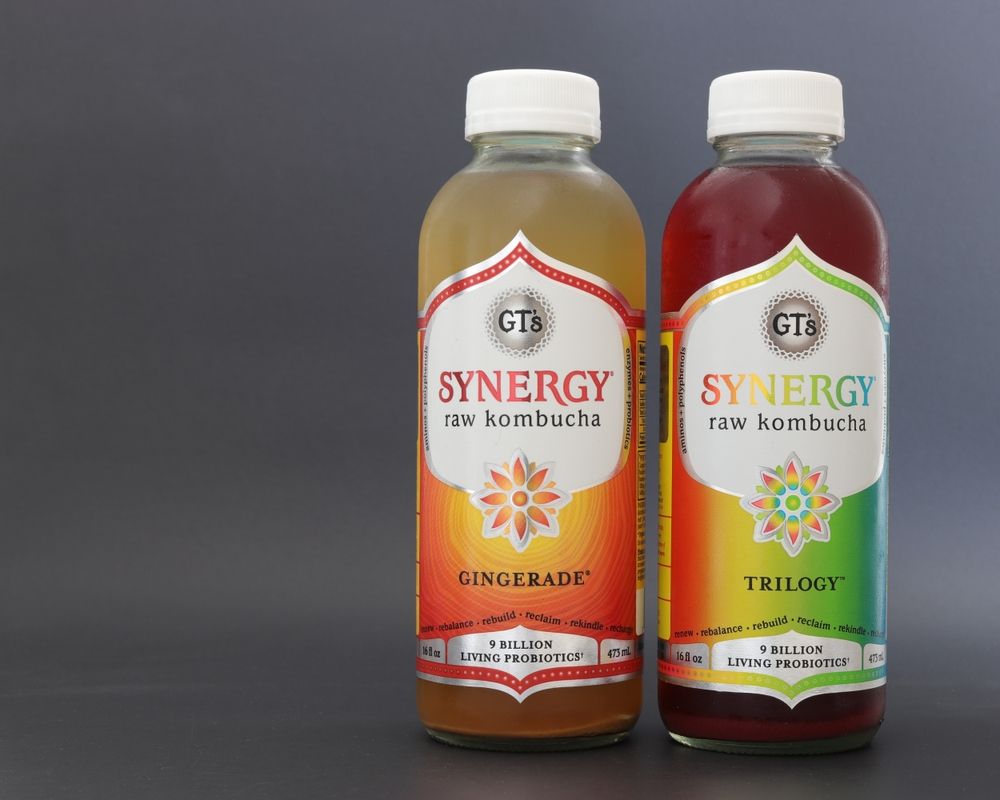
Nutrition (Per 1 Bottle):
- Calories: 50
- Fat: 0 g
- Sodium: 10 mg
- Carbs: 12 g (Fiber: 0 g, Sugar: 12 g)
- Protein: 0 g
GT's is one of the older kombucha brands on the market, and its popular Trilogy flavor is described as "tart raspberry highlighted by bright squeezes of lemon and a bold bite of fresh-pressed ginger." At the time of bottling, GT's kombucha claims to have nine billion living probiotics per bottle. This bottle cost me a hefty $7.99.
The look: This kombucha had a beautiful raspberry-like color, very slightly cloudy, with a thin layer of bubbles around the edges of the cup.
The taste: The flavor is intense. There's a vinegar-like scent upon the first sip, and the taste has a mix of vinegar and ginger with a strong dose of carbonation. I also found it quite sweet. While this would work in a pinch, I probably wouldn't choose it if other options were available. There was nothing particularly off-putting about it, but given a choice, I'd prefer the others. However, fans of ginger beer might really enjoy this one.
Whole Foods 365 Organic Guava Hibiscus Kombucha
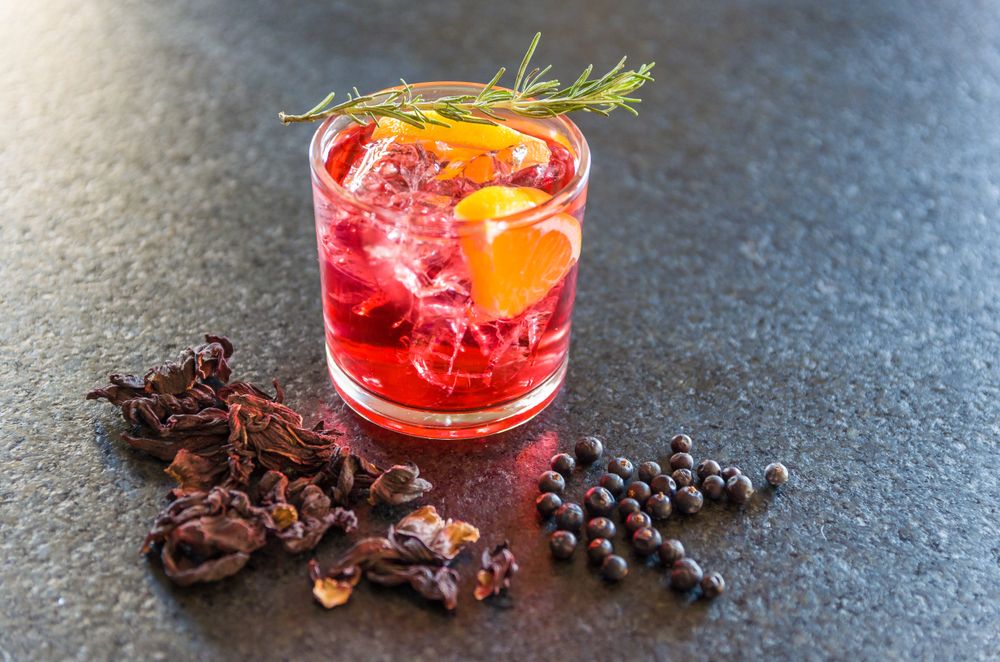
Nutrition (Per 16-oz. Serving):
- Calories: 80
- Fat: 0.5 g
- Sodium: 0 mg
- Carbs: 18 g (Fiber: 0 g, Sugar: 17 g)
- Protein: 2 g
The Whole Foods 365 brand is known for high-quality products, so I was eager to try their kombucha. Although there isn't much information available online, it had the highest sugar content of any kombucha I sampled. A bottle cost $2.69.
The look: When poured into a glass, this kombucha looked like a soft drink, becoming very frothy and bubbly right away. It had a clear peachy color reminiscent of rosé wine, with some bubbles around the rim of the cup.
The taste: This kombucha tasted almost like sparkling apple juice. It was a bit sweet, but not overwhelmingly so, and I couldn't discern the guava or hibiscus flavors. It was very effervescent, almost like a fruit soda. Overall, it was fine, but I wouldn't go out of my way to purchase it again.
Health-Ade Pomegranate Kombucha
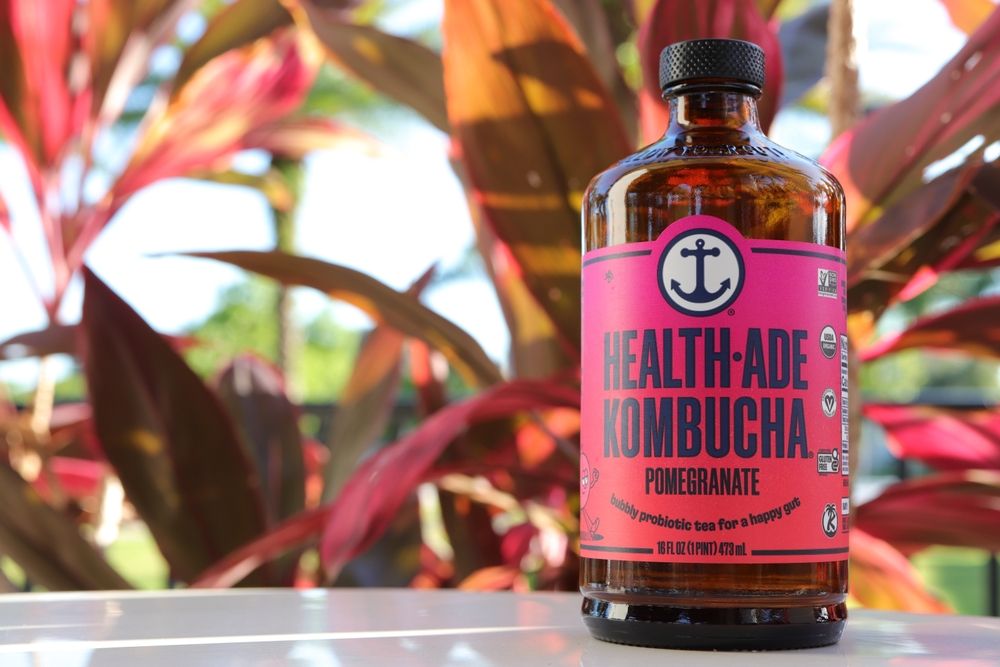
Nutrition (Per 1 Bottle):
- Calories: 80
- Fat: 0 g
- Sodium: 0 mg
- Carbs: 17 g (Fiber: 0 g, Sugar: 16 g)
- Protein: 0 g
At the time of bottling, Health-Ade's kombucha claimed to have one billion probiotics per bottle—double the daily amount recommended by the World Health Organization. This means you can get two servings per bottle, providing more bang for your buck. The brand uses a blend of black and green tea to make its kombucha. A bottle cost me $6.09 in New York City.
The look: This kombucha had a very bright red color, was quite translucent, and not cloudy at all.
The taste: Pleasant and lightly effervescent. It wasn't overly sweet, which can be off-putting, and it wasn't overloaded with carbonation. The pomegranate flavor was definitely present, and I think Health-Ade hit the right balance of flavor here. Too much pomegranate could make it overly sugary and artificial-tasting, but the producers showed restraint. I would definitely buy this again.
Bear's Fruit Blueberry Lavender Kombucha
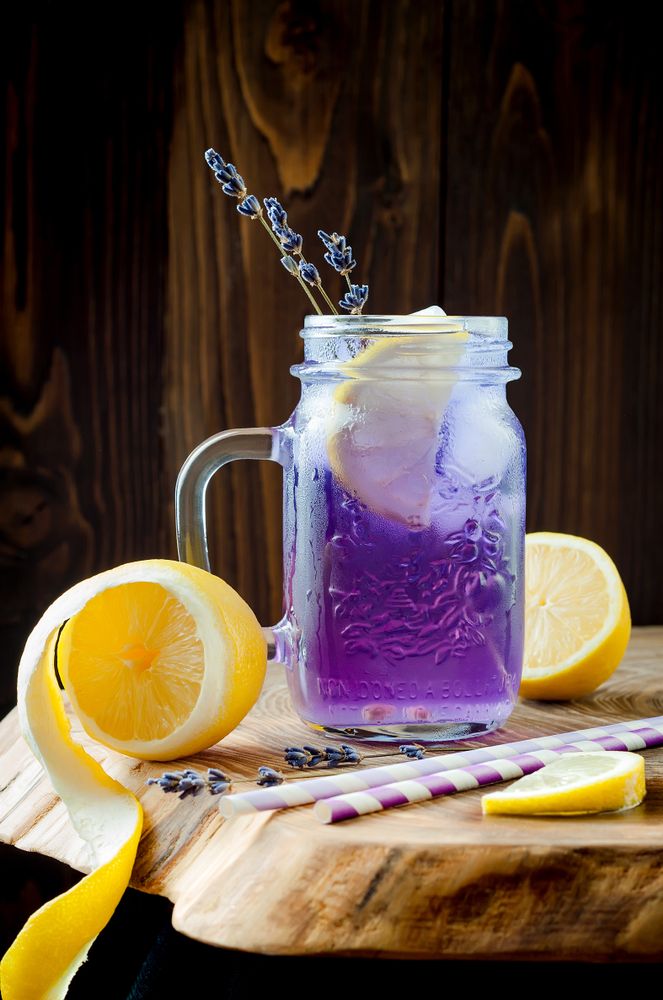
Nutrition (Per 1 Bottle):
- Calories: 50
- Fat: 0 g
- Sodium: 0 mg
- Carbs: 11 g (Fiber: 0 g, Sugar: 11 g)
- Protein: 1 g
I've long been a fan of Bear's Fruit kombucha, so I was excited to include it in this taste test. The blueberry lavender flavor is one of my favorites. One aspect I appreciate about this brand is the container size, which tops off at 12 ounces. A can cost me $4.79.
The look: This kombucha has a dark cranberry red color and is slightly cloudy. There are some bubbles around the rim, and you can see tiny bubbles rising to the surface.
The taste: This one is very carbonated but in a pleasant way. It almost has a ginger-like taste. You can taste subtle notes of lavender and a slight hint of tartness, more like cranberry than blueberry. This one is really good but a bit on the sweeter side.
Brew Dr. Cherry Limeade Kombucha
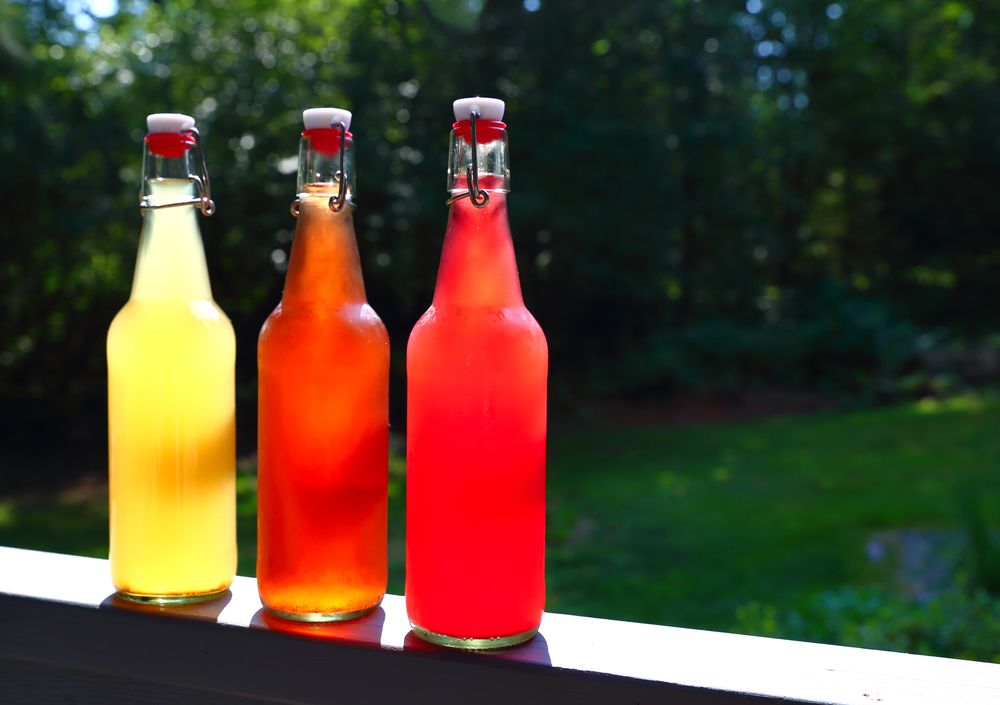
Nutrition (Per 1 Bottle):
- Calories: 60
- Fat: 0 g
- Sodium: 5 mg
- Carbs: 16 g (Fiber: 0 g, Sugar: 14 g)
- Protein: 0 g
I had never come across this brand before, but I was immediately drawn to the colorful packaging. The company was founded in 2006, and a bottle cost me $6.09.
The look: When poured into a cup, this kombucha had a light pinkish-red color and was quite translucent compared to some of its cloudier competitors. There was a subtle ring of bubbles around the outer rim of the cup, similar to GT's kombucha.
The taste: This is a refreshingly light sip that I'd love to enjoy on a hot summer day. It has just a hint of the promised cherry flavor, which is nice because it doesn't taste very sweet. The lime is a bit difficult to detect, resulting in a combination that is less sweet and more floral. Despite the visible bubbles, the effervescence was very light, making this go down smoothly and quickly. I'd love to try some of the brand's other flavors.
Kevita Raspberry Lemon Kombucha
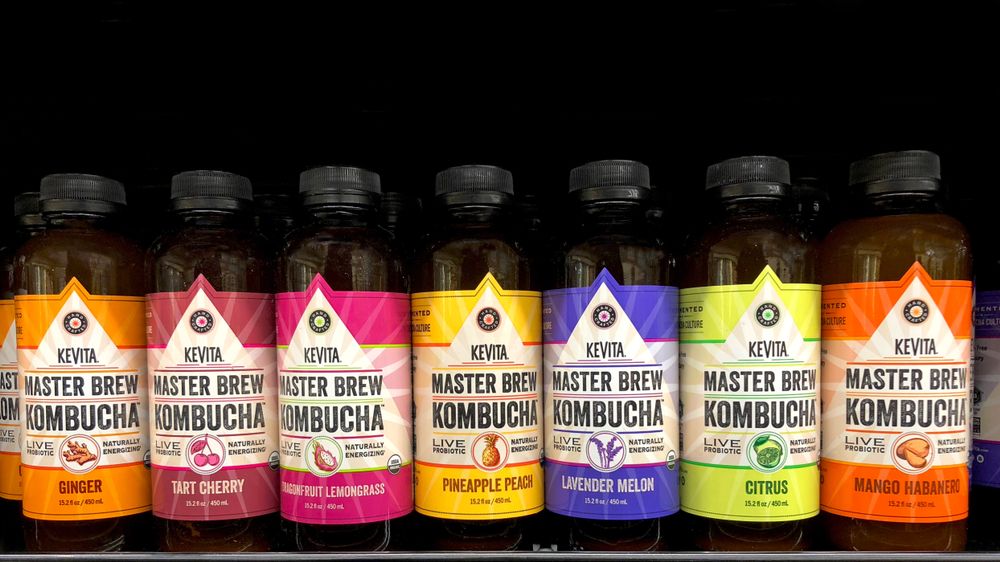
Nutrition (Per 1 Bottle):
- Calories: 40
- Fat: 0 g
- Sodium: 25 mg
- Carbs: 9 g (Fiber: 0 g, Sugar: 9 g)
- Protein: 0 g
Kevita was created in 2008 by a nutritionist, and its products are certified organic, non-GMO, and kosher. Each blend contains the brand's proprietary fermented cultures. A bottle cost me $7.39.
The look: This kombucha had a lovely light pinkish-orange color and a slightly cloudy appearance. It looked very smooth.
The taste: Really pleasant! The combination of raspberry and lemon provided a slightly sweet and tangy taste that was subtle and enjoyable. There's just a hint of lemon, and the flavors don't taste artificial. It is slightly effervescent and not overly bubbly. I really enjoyed this one.
Better Booch Mango Delight Kombucha
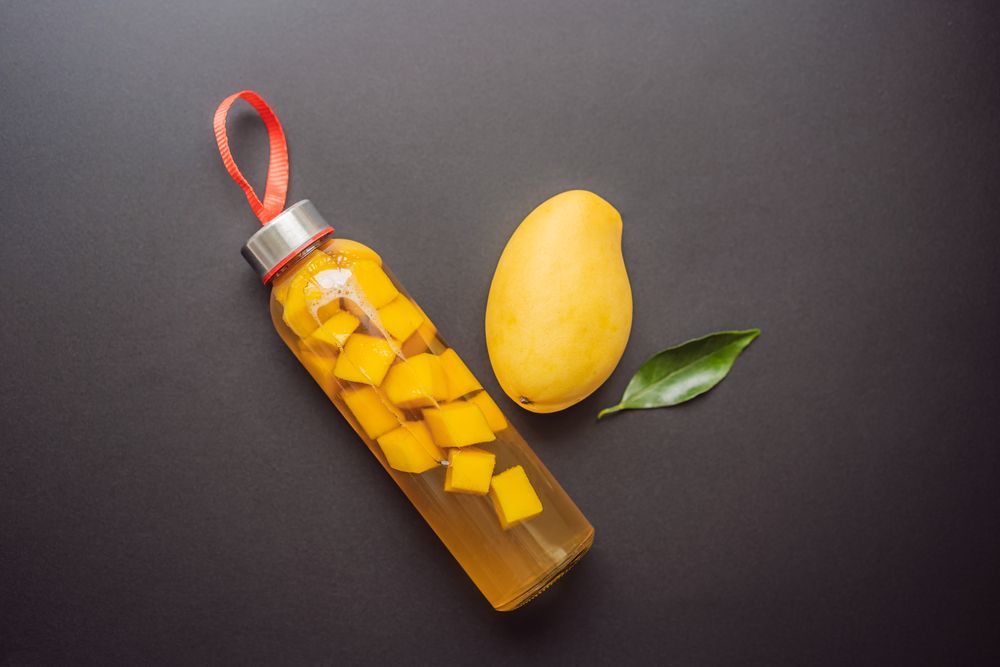
Nutrition (Per 1 Can):
- Calories: 45
- Fat: 0 g
- Sodium: 20 mg
- Carbs: 13 g (Fiber: 3 g, Sugar: 7 g)
- Protein: 0 g
This Los Angeles-born kombucha brand touts all the amazing benefits of kombucha and includes pre-, pro-, and post-biotic cultures to support gut health. A can cost me $2.99.
The look: I expected a bright orange color like mango, but when poured out, it was a very clear, translucent light yellow and slightly cloudy. When held up to the light, I could see tiny bubbles of carbonation.
The taste: This kombucha has a lovely, slightly bubbly mouthfeel—not too overpowering, but just enough to add some pizazz. The mango flavor is subtle and doesn't taste artificial. This is such a delightful drink that hits all the right notes. I'll definitely be back to try the brand's other flavors.

